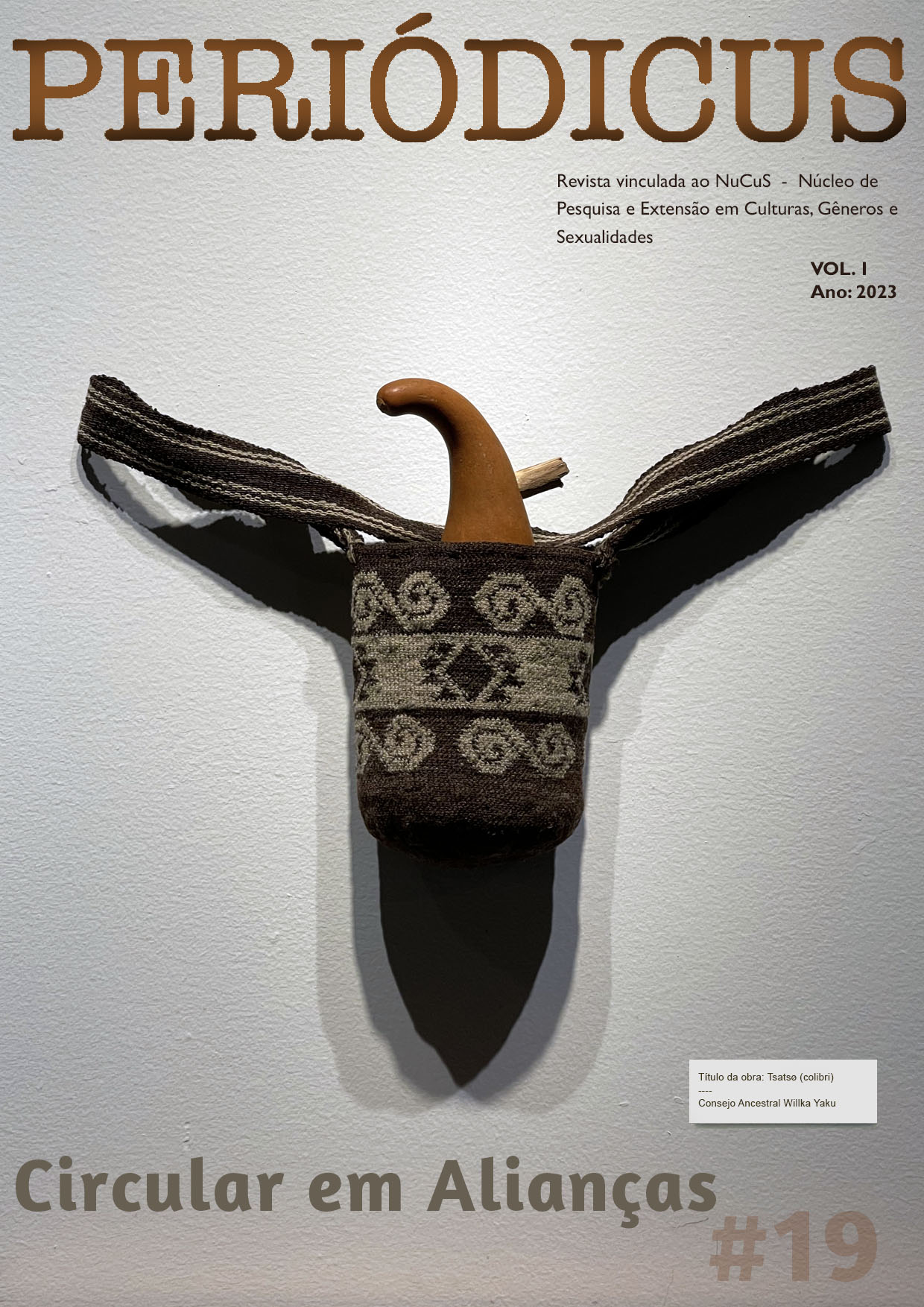A teia de solidariedade de gênero, raça e classe na experiência da Coletiva Popular de Mulheres da Zona Oeste do Rio de Janeiro
DOI:
https://doi.org/10.9771/peri.v1i19.53971Resumo
A Teia de Solidariedade da Zona Oeste é uma práxis criada pela Coletiva Popular de Mulheres da Zona Oeste, na periferia do Rio de Janeiro, como forma de re-existência dentro de um contexto de pandemia marcado por extrema insegurança alimentar e nutricional e pela fragilização da soberania alimentar. Como estratégia de luta, em um território de maioria negra e de maior produção de alimentos da cidade, saímos em defesa do “morar e plantar”, articulando as lutas pela terra, pela moradia, pela alimentação adequada, pelo Bem Viver, pelo autocuidado e cuidado radical e pela saúde integral. Em um ambiente hostil e de militarização, tendo como ênfase a perspectiva da população negra, foi possível suscitar outras práticas de cuidado e cura. Mesmo em um cenário desolador dos pontos de vista social, econômico e político, logrou-se fortalecer uma auto-organização de mulheres, principalmente mulheres negras, com resultados expressivos: entre 2021 e 2022 foram mais de quatro toneladas de alimentos distribuídos comprados diretamente da agricultura local. Cabe enfatizar que esse quadro só foi possível porque já havia um processo de auto-organização precedente nos territórios e também pelas condições de produção de alimentos e água existentes nesta região da cidade.
Downloads
Downloads
Publicado
Como Citar
Edição
Seção
Licença
Copyright (c) 2023 Silvia Baptista, Caren Freitas, Mariana Bruce

Este trabalho está licenciado sob uma licença Creative Commons Attribution-NonCommercial 4.0 International License.
Autores que publicam nesta revista concordam com os seguintes termos:
Autores mantêm os direitos autorais e concedem à revista o direito de primeira publicação, com o trabalho simultaneamente licenciado sob Licença Creative Commons Attribution Noncommercial que permite o compartilhamento do trabalho com reconhecimento da autoria e publicação inicial nesta revista, sendo vedado o uso com fins comerciais.
Autores têm autorização para assumir contratos adicionais separadamente, para distribuição não-exclusiva da versão do trabalho publicada nesta revista (ex.: publicar em repositório institucional ou como capítulo de livro), com reconhecimento de autoria e publicação inicial nesta revista.
Autores têm permissão e são estimulados a publicar e distribuir seu trabalho online (ex.: em repositórios institucionais ou na sua página pessoal) a qualquer ponto antes ou durante o processo editorial, já que isso pode gerar alterações produtivas, bem como aumentar o impacto e a citação do trabalho publicado (Veja O Efeito do Acesso Livre).








